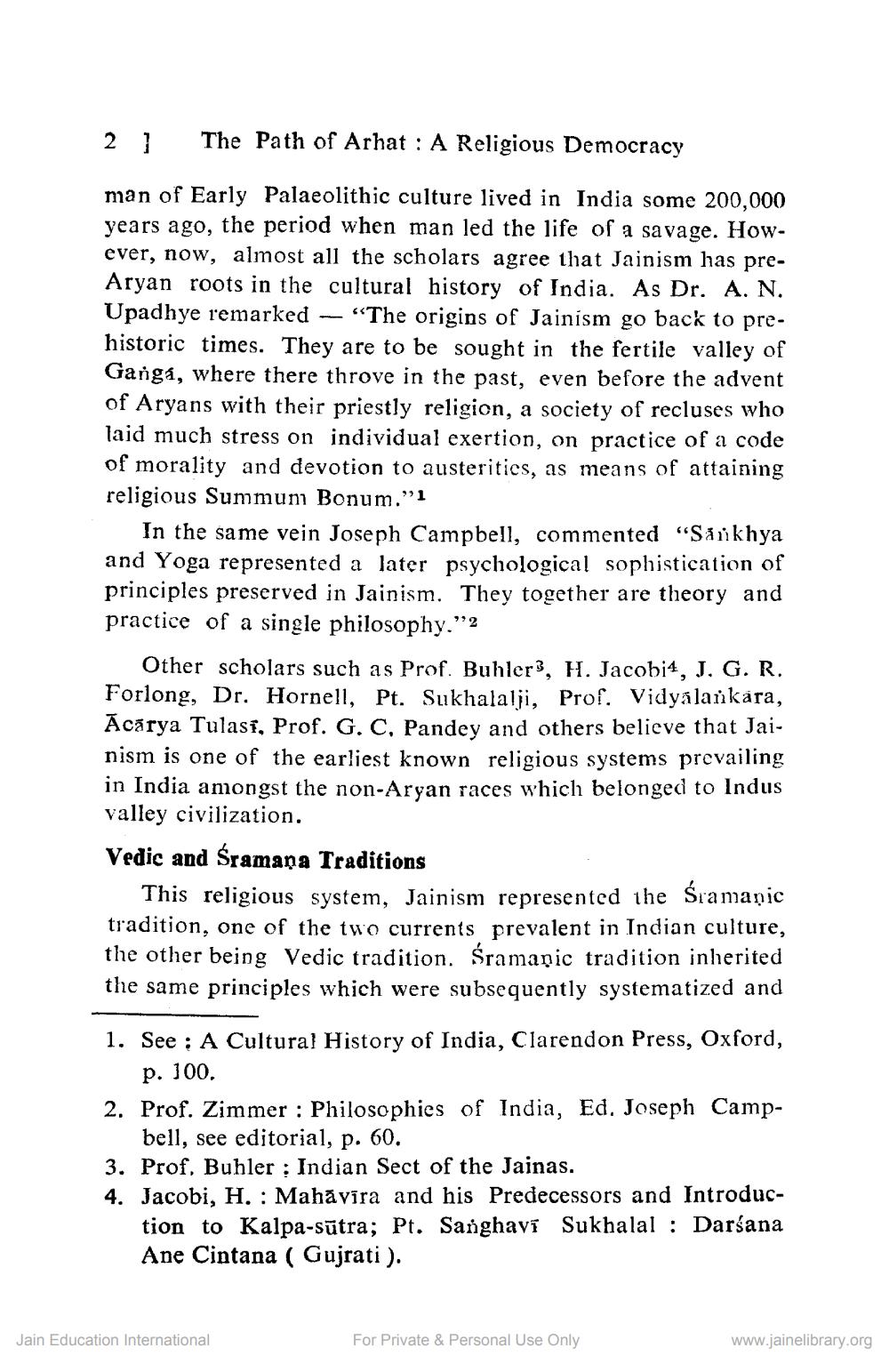________________
2
]
The Path of Arhat : A Religious Democracy
man of Early Palaeolithic culture lived in India some 200,000 years ago, the period when man led the life of a savage. However, now, almost all the scholars agree that Jainism has preAryan roots in the cultural history of India. As Dr. A. N. Upadhye remarked — "The origins of Jainism go back to prehistoric times. They are to be sought in the fertile valley of Gangs, where there throve in the past, even before the advent of Aryans with their priestly religion, a society of recluses who laid much stress on individual exertion, on practice of a code of morality and devotion to austerities, as means of attaining religious Summum Bonum.”1
In the same vein Joseph Campbell, commented “Sarkhya and Yoga represented a later psychological sophistication of principles preserved in Jainism. They together are theory and practice of a single philosophy.”2
Other scholars such as Prof. Buhler3, H. Jacobi4, J. G. R. Forlong, Dr. Hornell, Pt. Sukhalalji, Prof. Vidyalaukara, Ācārya Tulasi, Prof. G. C, Pandey and others believe that Jainism is one of the earliest known religious systems prevailing in India amongst the non-Aryan races which belonged to Indus valley civilization. Vedic and Gramana Traditions
This religious system, Jainism represented the Sramanic tradition, one of the two currents prevalent in Indian culture, the other being Vedic tradition. śramanic tradition inherited the same principles which were subsequently systematized and
1. See : A Cultural History of India, Clarendon Press, Oxford,
p. 100. 2. Prof. Zimmer : Philosophies of India, Ed. Joseph Camp
bell, see editorial, p. 60. 3. Prof, Buhler : Indian Sect of the Jainas. 4. Jacobi, H. : Mahāvīra and his Predecessors and Introduc
tion to Kalpa-sūtra; Pt. Sanghaví Sukhalal : Darśana Ane Cintana ( Gujrati ).
Jain Education International
For Private & Personal Use Only
www.jainelibrary.org




